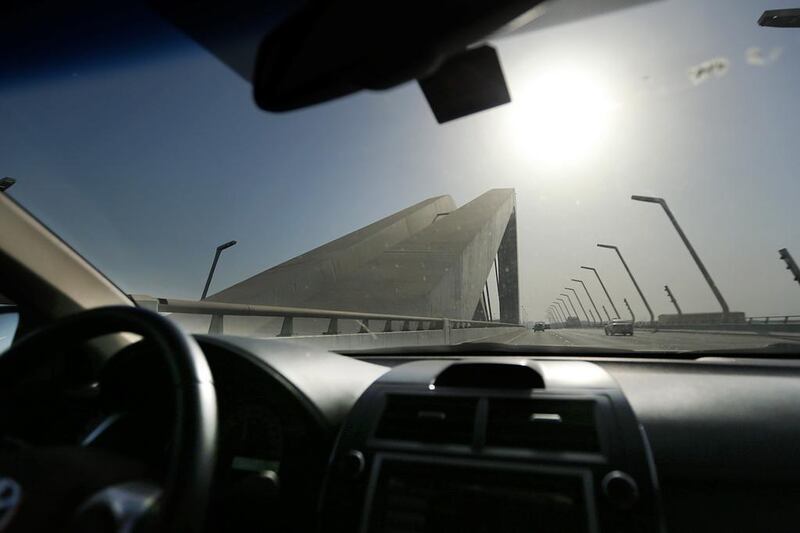ABU DHABI // The temperature inside a parked car after the air conditioning is turned off can double to 50°C in only 20 minutes, a test by The National has shown.
And health professionals say the test shows the real dangers to children who are locked inside cars, even for just a minute, especially in summer.
“A child trapped in a hot car can experience dehydration, shock and heatstroke,” said Dr Marwa Abdelfattah, a paediatrics specialist at Brightpoint Royal Women’s Hospital.
“Heatstroke can occur within a few minutes in a car because the temperature climbs so quickly, often much higher than the outside temperature. As the results show, 20 minutes is a very slim window to play with your child’s well-being.
“It is critically important that parents understand the medical dangers inherent in leaving children unattended in cars and on just how quickly conditions can become deadly.”
Dr Maya Madam, a paediatrician at Abu Dhabi’s Lifeline hospital, said children – regardless of their age – could not regulate their body temperature as well as adults, and their bodies start to shut down when exposed to very high temperatures.
“Because of the heat and suffocation, what happens in the brain is that they can lose consciousness and sometimes become very agitated and confused,” said Dr Madam.
“They will be panic-stricken. Even if they want to shout an alarm or alert a passer-by it may not be possible.”
Dr Madam said even a minute alone in a car was too risky.
“We can never say there is one safe time,” she said. “Not even a minute is safe. There is no safe time in which you can lock a child in a car.”
Even if the window is left open it makes little difference, especially in summer.
Dr Madam said parents often simply forgot the child was in the car. They could be distracted, running on autopilot, or a child could be left when a parent broke a routine.
“For example, if a mother is always taking care of the child then one day a father is in charge he may forget,” she said. “So always make it a habit that before you lock up you always look in the back seat.
“Always keep a child’s bag or an item belonging to the child in the front seat to help you remember that a child is sitting in the back.”
Last week temperatures hit highs of 46°C in Abu Dhabi when The National carried out its test. We measured the inside temperature of cars parked in direct sunlight and in shade.
In the sunshine, the inside temperature measured 25°C. Within 10 minutes it rose to 37°C; by 12 minutes 41°C; by 15 minutes 44°C; and by 20 minutes had reached 50°C.
When parked in the shade the temperature, beginning at 25°C, still rose to 36°C in 10 minutes. After 20 minutes it reached 40°C and by 30 minutes 42°C.
Last month Dubai Police police said they had rescued 58 babies, toddlers or children who had been locked in hot cars in the year until then.
Leaving a child locked in a car is tantamount to child abuse, said Dr Mohamed El Abiary, a consultant in paediatric endocrinology at Abu Dhabi’s Burjeel Hospital.
Dr El Abiary said that apart from heat problems, “how do we know this child will not be abducted or whatever?”
Another aspect is the phycological damage, he said.
“If a baby or a child is in the car and woke up to find she is locked in a car and she is trapped, that is a big psychological trauma to the child.
“All these factors go under neglect, and neglect is the most common form of child abuse.”
jbell@thenational.ae





